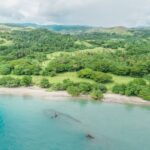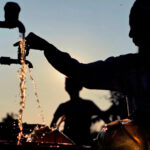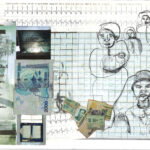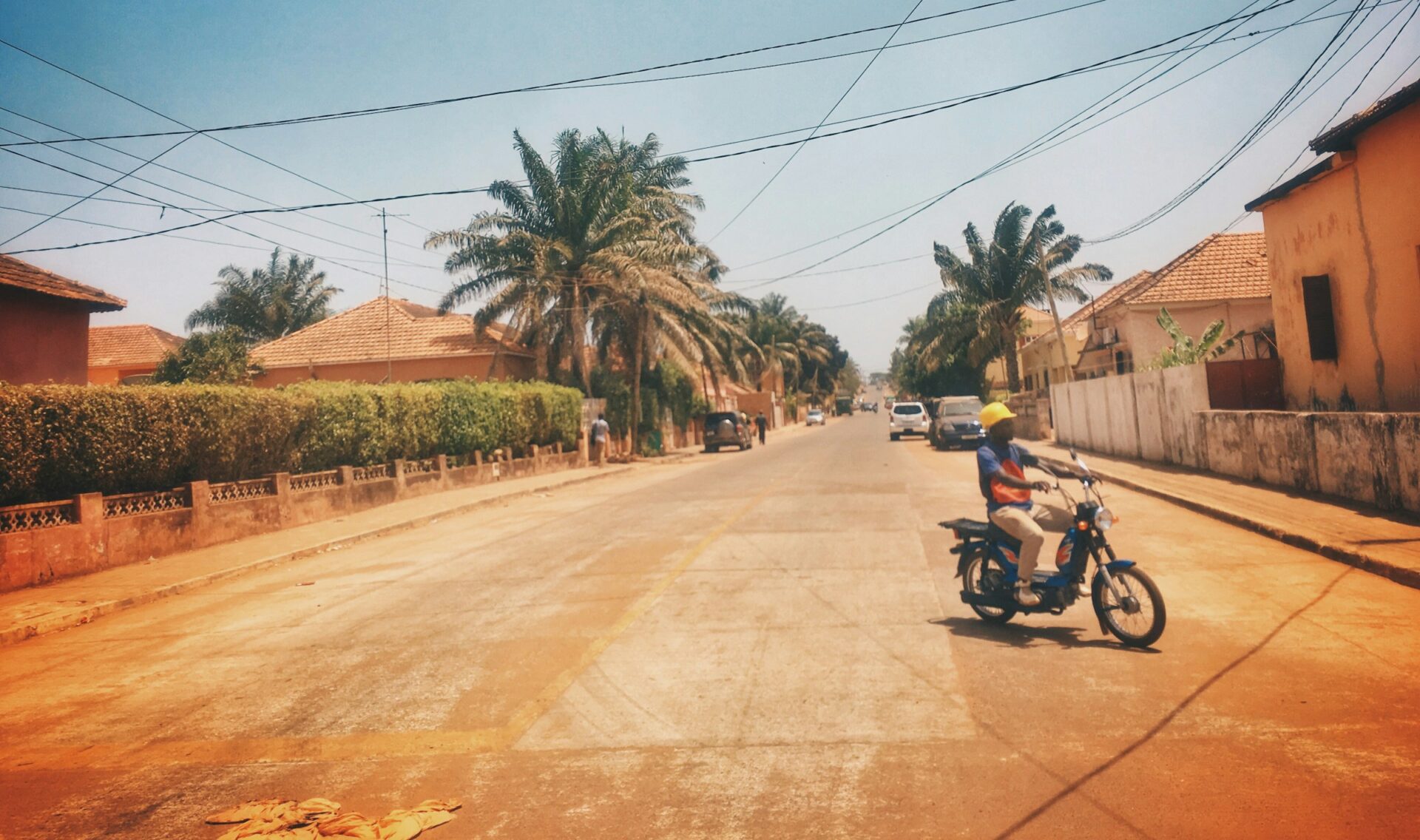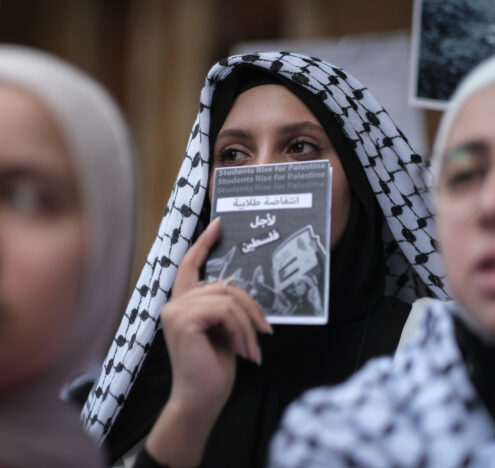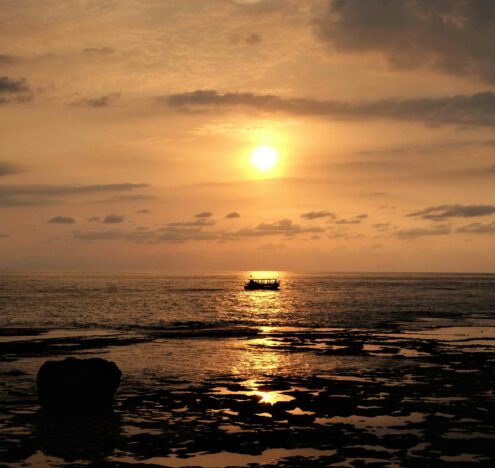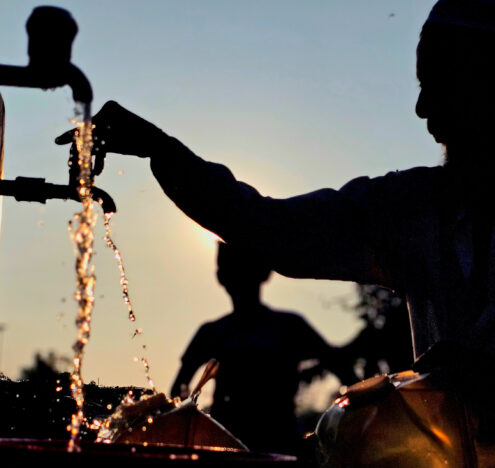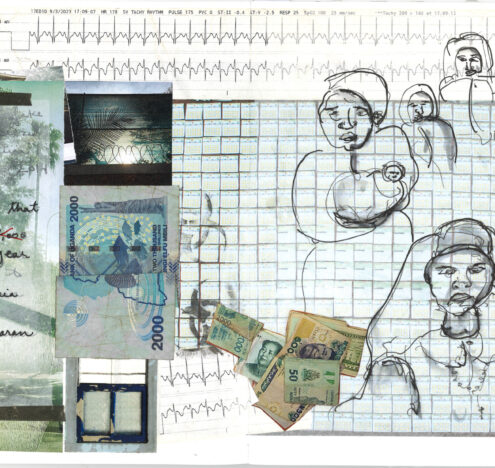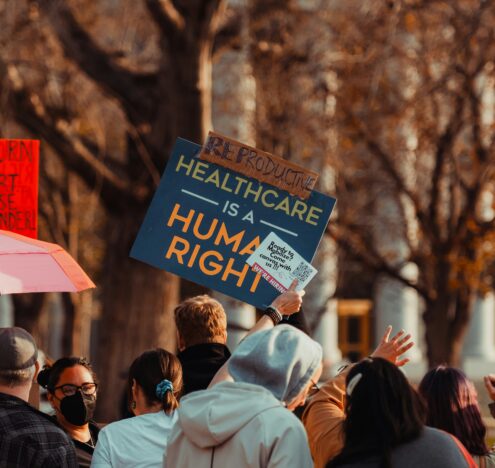Late last year, as November gave way to December, clashes erupted in Guinea-Bissau’s capital between different army factions. The ensuing tensions between President Umaro Sissoco Embalo and the opposition-controlled parliament are now reaching a breaking point — and some fear they could imperil the country’s democracy at a time when political volatility and coups have crept across West Africa.
Overnight on Nov. 30 and into Dec. 1, officers from the Presidential Palace Battalion and the National Guard, the country’s military, exchanged fire in Bissau. The shootout broke out after Embalo moved to probe two cabinet members he accused of corruption, Economy and Finance Minister Suleimane Seidi and Treasury Secretary António Monteiro.
The clash started when soldiers loyal to Embalo tried to rearrest the two ministers after they had been secretly released by the army from where they were being held for questioning. By the time the bullets stopped, the fighting had killed at least two people.
But two months on, the political fissures are still sharpening fears among many Bissau-Guineans. “For me, as a citizen who aspires to be in a stable and progressive country, I believe that there must be common sense among the political class and respect for the constitution,” said Juvinal Silva Santos Junior, a 27-year-old social activist and research assistant who lives in the capital city, Bissau.
Like many young Bissau-Guineans, Santos Junior worries the lack of consensus among the political class “impedes the country’s progress and worsens poverty, especially in a developing country.”
Guinea-Bissau, described by The World Bank as “one of the world’s poorest and most fragile countries,” is home to some two million people. The country shares a northern border with Senegal, where rights groups say a violent crackdown has targeted the opposition ahead of upcoming elections. Guinea-Bissau’s southeast region borders the Republic of Guinea, where armed forces took over in a coup in September 2021.
The security situation across the region isn’t much better: military takeovers rocked Mali in 2020 and 2021, Burkina Faso suffered two coups in 2022, a coup hit Niger last year, and yet another toppled Gabon’s president in August. Meanwhile, Sierra Leone says it thwarted a coup attempt in November 2023 after disputed elections five months earlier.
Power Play
President Embalo, who was attending COP 28 Climate Summit in Dubai when the clash broke out, promptly returned to the embattled country to reassert control. He first dismissed National Guard commander Colonel Victor Tchongo. Embalo accused Tchongo of working for the opposition. The National Guard answers to the Minister of Interior, who was appointed by the opposition-dominated National Assembly, prompting Embalo to dissolve it on Dec. 4 and appointing a new cabinet a few days later.
Domingos Simoes Pereira, president of the parliament and head of the leading opposition party, the African Party for the Independence of Guinea and Cape Verde (PAIGC), blasted the dissolution as unconstitutional.
While the president has the power to dissolve the parliament, Article 94 of the Constitution provides limits on that authority : “The National Popular Assembly may not be dissolved in the 12 months after an election, in the last half of the final six months of a Presidential mandate, or during martial law or state of emergency.”
But the current National Assembly was elected last June, not even six months before the president’s move to dissolve it.
The PAIGC and the PAI Terra Ranka coalition responded by calling for protests on Jan. 8, 2024, demanding that an armed blockade occupying the National People’s Assembly (ANP) leave the premises.
The protest march in Bissau City was heavily repressed and teargassed by the police, claimed leading opposition figure, Imani Umoja. Umoja who serves in the Political Bureau of the Central Committee of the PAIGC accused Embalo of a “premeditated plan to keep PAIGC out of power” that is now “backfiring.” He believes the dispute between PAIGC, a historically left-leaning nationalist party that fought for the country’s independence, and President Embalo is an ideological rift, and accuses Senegal and France of being behind the political turmoil in the country. Although France has limited economic presence in the country, President Emmanuel Macron visited Guinea-Bissau in July 2022, the first such visit by a French ruler.
The major play appears to be an attempt to preserve power.
– Afolabi Adekaiyaoja
Embalo is the first president to emerge in the country without the backing of the PAIGC. The PAIGC and its late leader, Almical Cabral, whose centenary celebrations are due for later this year, continue to enjoy widespread support due to the history of the country’s more than decade-long war of independence.
“The major play appears to be an attempt to preserve power,” explained Afolabi Adekaiyaoja, a research analyst with the Centre for Democracy and Development (CDD-West Africa) who has been monitoring events in the West African nation.
Guinea-Bissau is scheduled to vote in a presidential contest later this year amid rising opposition and concerns about Embalo’s performance during his first term in office. Since he took over, the country’s economy, which depends heavily on agricultural exports like cashew nuts, has been affected by the COVID-19 pandemic containing measures, supply chain disruptions, inflation and commodity price volatility.
According to the World Bank, although Guinea-Bissau has the highest proportion of natural wealth per capita in West Africa, poverty remains widespread. The United Nations Children’s Fund (UNICEF) estimates that about 69% of the population live in poverty and 25% suffer from chronic malnutrition. The dissolution of parliament, which Embalo also carried out in 2022 following another failed coup attempt, “will lead to questions of if he can provide the stable democracy that many Bissau-Guineans crave,” Adekaiyaoja added.
Through the Barrel of a Gun
In 1974, Guinea-Bissau won independence from Portugal through a guerrilla war. Across the five decades since, the former Portuguese colony has been gripped by a persistent, bitter power struggle — including a series of political assassinations and at least nine coups or attempted coups.
After Portuguese rule ended, the PAIGC ruled the West African nation as a single-party socialist state until Nov. 14, 1980, when João Bernardo Vieira overthrew President Luís Cabral — the half brother of the country’s Marxist and nationalist leader, Almicar Cabral who was assassinated in 1973. A veteran of the independence war, João Bernardo Vieira went on to liberalize the economy but stepped down four years later to allow for restoration of civilian rule.
However, Vieira reemerged in 1994 when he contested and won a narrow majority to become president following the end of the one-party state and the establishment of multiparty democracy in Guinea-Bissau. Nino Vieira — the guerrilla moniker by which he was better known — was ousted and shot dead in 1999 following an army uprising and civil war in which hundreds died and over 300,000 people were displaced. He immediately fled the country for six years only to reappear in 2005 when he contested and won elections to rule the country once again. After surviving a coup attempt in 2008, Vieira was assassinated on March 2, 2009, by soldiers avenging the bombing that killed General Batista Tagme Na Wai, head of the Joint Chiefs of Staff, a day earlier.
Part of Vieira’s legacy in Guinea-Bissau is the transformation of the country into a “Narco-State.” According to the United Nations Office on Drugs and Crime, Guinea-Bissau is a transit hub for cocaine and heroin from South America on its way to Europe. This has exacted a lasting impact on politics, according to Alex Vines, the Africa director at Chatham House. Vines pointed to the “failure of security sector reform, penetration of organized crime and the absence of credible institutions” as key factors driving instability in Guinea-Bissau.
The link between the powerful drug cartels and the violent nature of politics in Guinea-Bissau is the subject of findings of an investigation in 2021 which outed Malam Bacai Sanhá Junior, the son of the country’s former President Malam Bacai Sanhá, as a central figure in the drug trade in the region. According to the transcripts of a statement by an undercover agent to a court in Texas dated Sept. 6, 2022, Malam Bacai Junior stated that he provided funds from drug operations to finance a coup in the country.
In April 2012, after President Malam Bacai Sanhá died from diabetes complications, another political deadlock followed. For the fourth time since 1998, soldiers once again took power in Guinea-Bissau — this time to block PAIGC presidential candidate Carlos Gomes Junior, who had won 49% votes, from coming to power. The resulting chaos led to a deepening of the political impasse in the crisis-ridden nation.
Throughout Guinea-Bissau’s turbulent history, only one democratically elected president, Jose Mario Vaz who ruled between June 2014 and February 2020, has completed a full term in office. But that doesn’t mean his tenure wasn’t without turbulence — political crises led him to shuffle through seven prime ministers.
President Embalo was elected during a runoff in the December 2019 elections after winning more than 53% of the vote, defeating PAIGC leader Domingos Simões Pereira, who won 46.4 percent of the vote.
The PAIGC candidate disputed the poll and promptly filed complaints at the Supreme Court. However, in defiance of a vote-auditing order made by the Supreme Court, Embalo was sworn in thus setting the stage for the institutional chaos that has plagued the country since then.
Last June, the PAIGC-led Terra Ranka coalition secured 54 seats in the country’s 102-member National Assembly. Meanwhile Embalo’s ruling Movement for Democratic Alternation Group 15 (MADEM G15) placed second with only 29 seats. Guinea-Bissau operates a semi-presidential system that severely curtails the president’s powers by allowing the majority party in the parliament to appoint the Cabinet. Although the president retains the power to dismiss the parliament in certain circumstances, this arrangement has often led to political deadlock.
From the moment he assumed power, Embalo has faced division and instability. At least six people were killed during a failed attempt to overthrow him in February 2022. A key aspect of the ongoing crisis is the refusal of the PAIGC to recognize Embalo as president. The opposition accuses him of illegitimacy and violating the country’s constitution.
“For many, Embalo’s legitimacy as president is questioned and the repeated dismissals of parliament are an attempt to maintain control over government affairs because of the separation of powers between the president and the prime minister,” research analyst Adekaiyaoja explained. This is behind attempts by the president to push for a constitutional reform that will vest full head of government powers in an elected president. “Yet, the divided parliament means that the necessary three-fifths of parliament support to proceed is unlikely to be reached and has continued this uncomfortable power sharing agreement.”
What Next?
Following the violent attacks on demonstrations in January this year, a political impasse has developed. In the meantime, the opposition and groups sympathetic to it within the region continue to demand the opening of the parliament. In a statement issued last week on X, the Amilcar Cabral Ideological School-Movement based in Nigeria declared support for the PAIGC adding: “[T]he presidential elections must hold, not later than in 2024!”
“There is absolutely enough reason to fear that Guinea-Bissau could fall to a coup in 2024. This could become even more possible if elections are canceled or, even worse, if there is a similar level of controversy and uncertainty following the outcome. This concern could further be aggravated by the fact that key institutions are not perceived to be loyal to the constitution but to participants, which may fuel the weaponization of powers by both sides of the divide” Adekaiyaoja argues.
“Under Mr. Embalo’s increasingly authoritarian rule, further clampdowns on opposition leaders should be expected — often justified through claims of preserving national security — in the foreseeable future …The dissolution of parliament further highlights the fragility of governability and the risk of a further coup attempt in 2024,” Vines explained. He added that the prospect of a breakdown “validates the importance of the deployment of the ECOWAS stabilization force.” (The 600-strong force from Nigeria, Senegal, Ivory Coast and Ghana was deployed in February 2022 following the attempted coup against Embalo.)
But in the unfolding situation where the regional body now faces a credibility crisis of its own due to its chaotic handling of the political crisis in Niger last year, the jury is out as to how ECOWAS will conduct itself for the sustenance of peace and stability in the region. On Jan. 28, 2024, the military leaders of Niger, Burkina Faso and Mali announced their withdrawal from the Economic Community of West African States (ECOWAS), suggesting a further escalation of the crisis. This move came despite US Secretary of State Anthony Blinken’s diplomatic shuttle into the region last month to strengthen ties and seek a political solution to the region’s political crises. Expected transitions in Senegal and Ghana are expected to further test the regional bloc in the coming weeks and months.
For Santos Junior and other young Bissau-Guineans born into a strife-torn country, it is difficult to be optimistic about the future. Guinea-Bissau’s present political crisis is not new as it is a part of the successive political instabilities since the country’s democratic opening in 1994, some 30 years ago. The problem, however, is that “there are no signs or guarantee[s] that this impasse will not culminate in violent extremism and other armed conflicts as happens in other countries,” he added.




